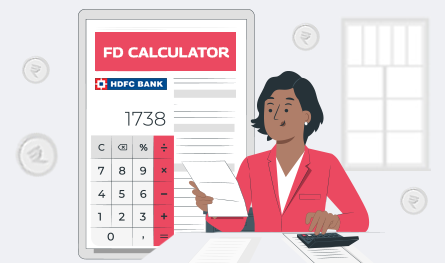Related Articles
 Jan 08, 2025
Jan 08, 2025
Is Varicose Vein surgery covered under the health insurance policy in India
 Health Insurance
Health Insurance
.png)
An employed individual, besides earning a stable salary every month, also gets various other employment related benefits. Gratuity, pension benefits, fringe benefits, leave encashment, etc. are all entitlements which an employee is entitled to. Moreover, employers also provide their employees coverage under a group health insurance plan. Not only employees, their immediate families are also extended coverage under the group health plan. Premiums are often paid by employers and employees enjoy free coverage. Due to this cover, many individuals feel that they do not need a separate health insurance plan for themselves. Is the sentiment correct?
Well, if you are also wondering if your group health cover is enough and you do not need a separate plan, ask yourself these questions first –
.png)
Your group health plan would cover you as long as you are actively employed with your organization. The moment you leave your job, your health cover ceases to exist. How would you cover yourself then? A separate health insurance plan makes sense in these situations. It is not dependent on the continuity of your employment and covers you independently. If you are sure of staying with the same organization till retirement, your group health plan maybe adequate. If not, get a separate plan at the earliest.
Even if you stay with the same organization till retirement, after retirement your health cover would cease. Wouldn’t you require health coverage post retirement? In older ages health related ailments increase and the requirement of a health plan is felt more than ever before. Moreover, the huge expenses involved in medical treatments are not possible to afford on retirement income. Health insurance companies allow coverage in the older ages for existing customers. If you do not have any separate health insurance plan, you would not be able to avail the desired health insurance coverage after you retire. So, you should have a separate health plan together with your group plan so that even after retirement, you can enjoy continued coverage.
Under group health insurance plans, the Sum Insured is determined by the employer. It is usually based on your position in your organization’s hierarchy. As such, you do not have any choice in the Sum Insured offered by your group plan. Having a sufficient coverage is essential if you are to combat the rising medical inflation. Under group plans, you are not adequately insured. A separate health plan is, thus, necessary if you want to avail an optimal coverage level for yourself and your family.
Another thing to note is the coverage features. Group health plans provide all the basic coverage features. But what about additional coverage benefits which you might require? For instance, you might need maternity insurance cover which might not be available in your group health plan. A separate health insurance plan bought independently gives you the control over choosing coverage features. Separate plans provide separate coverage benefits. You can choose the required features based on your lifestyle, a choice which is conspicuously missing from group health plans.
An employer sponsored health insurance plan makes you complacent thinking that the cover is enough and you do not need any other health plan. Well, this complacency is wrong. Though a group health insurance plan is good, you need an independent health insurance plan along with it. An independent health plan would give you lifelong coverage which would not depend on your employment status. You can choose the required coverage features under a separate plan and the choice of Sum Insured is also in your hands. Thus, in an independent health insurance plan you get a customizable cover. So, if you have a group health plan, try and supplement your coverage through an independent health plan. If affordability is an issue, you can start with a smaller coverage level and gradually increase it over the years. You and your family deserve the best in healthcare. Don’t let your group plan restrict your benefits. Opt for a separate plan and reap the benefits.
Choose wisely!


Paybima Team
Paybima is an Indian insurance aggregator on a mission to make insurance simple for people. Paybima is the Digital arm of the already established and trusted Mahindra Insurance Brokers Ltd., a reputed name in the insurance broking industry with 17 years of experience. Paybima promises you the easy-to-access online platform to buy insurance policies, and also extend their unrelented assistance with all your policy related queries and services.
So, you’ve crossed the fabulous 60 mark. Retirement may be on the cards, your kids might be off doing their own thing, and suddenly your knees are making more noise than your WhatsApp notifications. Welcome to the senior citizen club.
Now let’s talk about something most of us tend to postpone until a doctor gives us a reality check: health insurance. If you are wondering whether buying health insurance after 60 makes sense, the answer is a loud and clear yes. This article will cover everything you need to know about it, how it makes sense, how it differs from health insurance for young adults, and what you need to look out for when checking for medical insurance above the age of 60.

.png)
April 2 is observed as World Autism Awareness Day and there is no better way to observe the day than to raise awareness of this condition and to promote kindness towards autistic people. Read on to know more.


Car depreciation implies the difference between the cost of a car at the time of buying the car and when you sell it. A car insurance claim amount is determined by the car depreciation rate. The car depreciation rate is the reduction in the value of your car over its lifespan caused by wear and tear.


Fixed Deposits (FDs) are one of the safest ways to grow your savings. HDFC Bank offers attractive FD interest rates, allowing you to earn guaranteed returns on your investment. But before you invest, it's important to know how much interest you will earn and what your final maturity amount will be.


If you think of life insurance, chances are you are picturing something people buy in their 30s or 40s. But what if you are 65 or older and just getting started? The good news is that you are never too late. Whether you are thinking of easing the financial burden on your family, covering final expenses, or simply leaving behind a legacy, there are life insurance options tailored just for you.
This article will be a guide to life insurance for senior citizens above 65 years, explaining why it is important, the type of insurance options, and how to get the right policy for you.
